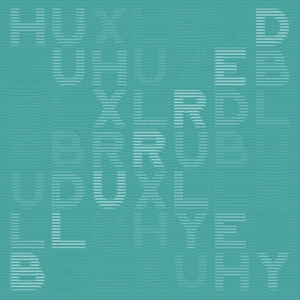Huxley Blurred
A radio-ready UK garage album is a destination that Aus has been heading towards for […]

A radio-ready UK garage album is a destination that Aus has been heading towards for a while. The eight-year-old imprint is a house label, but most artists on its roster have grown up on a resolutely British diet of dance music. One of its best records, Joy Orbison’s The Shrew Would Have Cushioned the Blow EP, is a seminal exchange between melody-rich house and dubstep’s asymmetrical gallop, and it gave Aus, and many other labels like it, a renewed confidence about their own heritage. More recently, acts like Dusky and Huxley have offered Aus a route into the sort of easy-on-the-ears house music that has begun to populate the UK’s commercial radio playlists. Blurred, then, is an album—the first one Aus has ever released—that confronts both of these ambitions from an artist who is as good a representative as anyone for the label’s sound these days.
That comes with a caveat, though. Huxley’s music has little of the vulnerable, introspective qualities of fellow Aus alumni Cottam or Appleblim; Blurred traces its UK garage influences in bold, colorful marker lines. “I Want You,” the album’s opener, is a notable exception to this rule. Its plaintive vocal and melancholy keys in isolation are a treat, and the the track thereafter swells with an elegant, lightly applied string section and a thick, gum-like sheet of bass. (In truth, this, and the track’s muted kickdrums, clutter the song’s early-morning, open-air mood a little.)
Huxley likes to warp and twist the vocal samples he uses, and Blurred finds him employing this trick a lot. On “Cakewalk,” one of the album’s better tracks, an indistinct, three-syllable phrase burrows into the track’s blooming synths and sullen, low-register garage stabs, accentuating the track’s atmospheric qualities. On songs like “Broken Dreams,” where the vocal sample is stretched out, it becomes the center of attention, and this is where Blurred‘s shortcomings become apparent. Simply put, they’re not handled with the same intuitive craft that, say, Disclosure seems to apply with such ease. It’s a relevant comparison, because Blurred shares similar qualities with Settle. Huxley’s LP may fall short of the Lawrence brothers’ pop songwriting, but it’s informed by a similarly saturated color palette of sounds and silky pop textures.
Like Settle, Blurred has an array of singers at its disposal, but the results are inconsistent. “Road Runner,” featuring vocalist Obenewa, is the album’s most ready-made single with its boilerplate PMR-style chorus (“I ain’t your road runner babe”), but “Say My Name” is a more fertile collision of Huxley’s way with a catchy bassline and a guest vocalist, Yasmin, who sings as though she’s less inclined to drag the song into crossover territory.
The surfaces of these polished songs gleam like a showroom saloon, but no matter how well produced Blurred‘s tracks may be, there’s no masking the staleness of some of the album’s ideas. The aforementioned vocal tracks provide the LP with, by turns, sparky UK garage and flat-sounding radio bait (the worst of the bunch, the cloying “Give 2 U,” has a short-lived future on a Ministry of Sound chill-out compilation ahead of it), and the varying quality of these efforts ultimately show that Huxley is a producer who’s still finding his feet with the album format. Some of Blurred‘s strongest tracks, as if to underscore the point, are straight-ahead dance records (such as the all-too-short, swaggering drum & bass track “MXR,” the synth-drenched, hypermelodic “Wayfarer,” and “Cakewalk,” all of which could be considered highlights in Huxley’s catalog). Furthermore, “I Want You” and “Say My Name” show that Huxley is capable of crafting compelling songs outside of his comfort zone. Still, on the whole, Blurred is an uneven release. Huxley’s ambition is laudable, but it’s only his decision to hedge his bets a little that saves the album from being a completely subpar outing.

